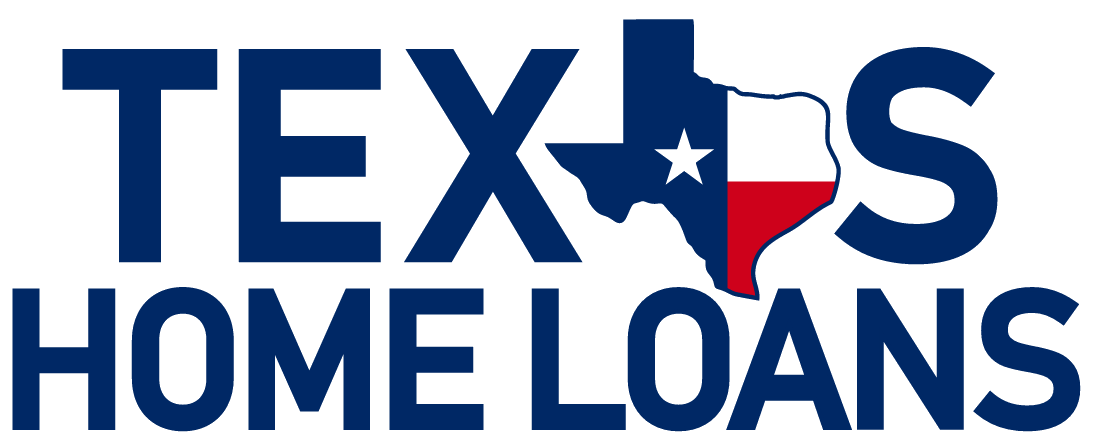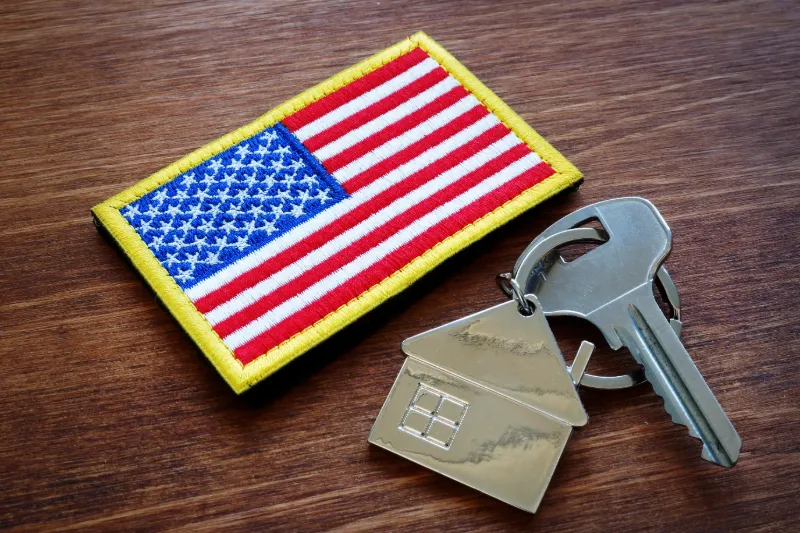When it comes to financing a home in Texas, I've seen many buyers struggle with…
Texas VA Home Loans: Eligibility, Benefits, & Application
For military veterans in Texas looking to plant roots and purchase a home, a VA home loan presents an incredible pathway towards homeownership. These home loans are for eligible veterans, active-duty military, and surviving spouses in Texas. They help realize the dream of homeownership.
VA Loans in Texas
The VA home loan program isn’t just a benefit; it’s a testament to the service and sacrifice of our veterans. The U.S. Department of Veterans Affairs backs these loans, giving lenders the confidence to provide veterans with more favorable terms than they might find elsewhere.
In the Lone Star State, this program takes on even greater significance. Texas boasts a significant active-duty and veteran population. The VA loan program in Texas aims to make the dream of homeownership achievable for those who’ve dedicated a part of their lives to serving our country.
The Basics of VA Loans for First-Time Homebuyers
First-time homebuyers, especially veterans, often find the homebuying process daunting. A VA home loan can significantly ease this burden. The most attractive feature for many first-time buyers is the possibility of securing a loan with zero down payment.
This means eligible veterans can purchase a home without the upfront cost of a down payment. This cost is often a significant hurdle for new buyers. Though buying a home involves closing costs and fees, the lack of a down payment makes homeownership more accessible.
For many veterans using a VA home loan, the dream of owning a home in Texas becomes much more attainable. This benefit alone makes it a worthwhile option for first-time homebuyers considering settling in the state.
Why Texas is Unique for VA Loans
Texas stands out when it comes to VA loans, and that’s not just because of its size or welcoming atmosphere. The state has a strong network of real estate agents who are well-versed in VA loans and dedicated to helping veterans find their dream homes.
Furthermore, Texas doesn’t impose a state income tax, which can lead to significant savings for homeowners, especially those with a VA loan. These savings can be directed toward other essential expenses or even contribute to faster mortgage payoff. In essence, Texas offers a combination of factors that make it especially attractive to veterans looking to buy a home. From knowledgeable real estate professionals to favorable tax laws, the state extends a warm welcome to those who’ve served.
Why Choose a VA Loan?
VA loans are not just another mortgage option; they are a form of recognition and gratitude for the sacrifices of our military personnel. Choosing a VA loan over conventional mortgages can lead to substantial long-term savings and make the dream of homeownership a reality for many veterans.
These benefits, combined with the supportive environment in Texas, solidify the VA home loan as an excellent financing option for veterans and their families putting down roots in The Lone Star State.
No Down Payment Required
One of the most significant advantages of a VA home loan is the potential for eligible borrowers to obtain 100% financing, meaning no down payment is required. This benefit removes a massive financial barrier that often prevents many people from buying a home.
Without the burden of saving for a down payment, eligible veterans and military families can achieve homeownership sooner. They can start building equity in their homes and enjoy the stability and pride of homeownership much earlier in life.
This aspect of VA loans is particularly impactful when considering the financial strain transitioning from active duty to civilian life can bring. It’s a powerful testament to the government’s commitment to supporting veterans beyond their time in service.
Easier Qualification Process
While there’s no specific minimum credit score mandated by the VA, lenders who provide VA home loans typically have more lenient credit score requirements compared to conventional loans. This means that veterans with less-than-perfect credit scores may still qualify.
The VA understands that life circumstances can impact credit scores, and these loans offer veterans a chance to get back on their feet financially. Even if a credit score is slightly below the typical threshold for a conventional loan, qualifying for a VA loan may still be possible.
It’s essential to consult with a VA specialized lender to understand their specific credit requirements and determine eligibility. They can guide borrowers through the process and provide clarity on the steps needed to improve their chances of approval.
No Private Mortgage Insurance
Unlike conventional mortgages, VA home loans don’t require borrowers to pay private mortgage insurance (PMI). Typically, borrowers who make a down payment of less than 20% of the home’s value are required to pay PMI, adding an extra expense to their monthly mortgage payment.
However, since the Department of Veteran Affairs backs VA loans, lenders consider them less risky and waive the PMI requirement. This translates to significant monthly savings for veterans, freeing up funds for other essential expenses or financial goals.
The absence of PMI further emphasizes the financial benefits of VA loans and adds to their overall affordability, making them a smart choice for eligible veterans and their families.
Lower Interest Rates for Veterans
Another compelling reason to consider a VA mortgage is the potential for lower interest rates than those offered through conventional loans. The backing of the VA gives lenders more confidence, allowing them to extend more favorable interest rates to veterans.
Lower interest rates can significantly reduce the overall cost of a mortgage over its lifetime, translating to thousands of dollars saved. This benefit is especially impactful when considering the long-term financial picture. Veterans can enjoy lower monthly payments, making it easier to manage their household budgets and allocate funds towards savings, investments, or other financial priorities.
Typical VA Loan Eligibility Requirements
To access the multitude of benefits VA home loans offer, veterans must meet specific eligibility criteria set by the U.S. Department of Veterans Affairs. These requirements are in place to ensure that the program serves those who’ve dedicated themselves to service in the military.
Understanding and meeting these prerequisites is a crucial first step towards obtaining a VA loan, and veterans should work closely with a VA-approved lender for a smooth and successful process.
Documents Needed
Service members looking to secure a VA loan need to gather essential documents as proof of eligibility. Among these documents is the Certificate of Eligibility (COE), a vital piece of the puzzle that confirms the borrower’s eligibility for the loan program based on their service record.
It outlines details about a borrower’s service history, ensuring they meet the minimum time-in-service requirements, making it a crucial step in the application process. In addition to the COE, lenders typically require other standard income and employment verification documents, just like conventional mortgages. Having these documents prepared in advance can streamline the VA loan application and ensures a smoother, faster approval process.
Credit score and debt-to-income ratio requirements
While the Department of Veteran Affairs doesn’t set a fixed minimum credit score requirement for VA loans, most private lenders who offer these loans have their own set of guidelines regarding creditworthiness. Lenders review a borrower’s credit history to assess financial responsibility and their ability to manage debt.
In addition to credit score, lenders assess a borrower’s debt-to-income ratio (DTI). DTI measures the percentage of monthly gross income going toward debt payments. This evaluation helps lenders determine if the borrower can afford monthly mortgage payments along with other financial obligations.
Maintaining a good credit history is crucial for obtaining favorable loan terms, highlighting the importance of responsible financial management both during and after military service.
Service requirements for active-duty members and veterans
The required service time for VA loan eligibility depends on when the veteran or active-duty member served. Active-duty service members generally need 90 continuous days of service to be eligible for a VA home loan.
For veterans, the minimum service requirement varies. Those who served during periods of war or conflict may have different requirements than those who served during peacetime. Additionally, members of the National Guard and Reserves must meet specific criteria regarding active duty and reserve service time to qualify for a VA loan.
It’s essential to note that receiving a dishonorable discharge may affect a veteran’s eligibility for a VA loan. Veterans are encouraged to consult with a VA-approved lender or contact the VA directly to understand how their specific service record determines their eligibility.
How to Navigate the VA Loan Process in Texas
The VA home loan process in Texas may seem complex at first, but by understanding each step and working closely with a reputable lender, veterans can navigate it with confidence. Organization and careful preparation make for a much smoother experience.
Remember, obtaining a VA loan is a significant step towards homeownership, and thorough understanding of the process ensures that veterans are well-informed and confident in their financial journey.
Securing Your Certificate of Eligibility
As mentioned earlier, the COE is a vital document that serves as proof of a veteran’s eligibility for a VA loan. Obtaining the COE is an essential early step in the process, and it confirms to lenders that a veteran meets the basic service requirements set by the Department of Veterans Affairs.
The COE provides details about a veteran’s military service, including length of service, duty status, and character of discharge. It’s essential to obtain this document early in the homebuying journey, as it’s required to proceed with a VA loan application.
Veterans can apply for their COE online through the VA’s website, through a VA-approved lender, or by mail. Having the COE readily available can streamline the loan approval process and move the veteran one step closer to owning their dream home.
Getting Pre-Qualified
Getting pre-qualified for a VA home loan is a wise step in the homebuying process. Pre-qualification involves providing a lender with basic financial information, including income, debts, and credit history, so the lender can provide an estimate of how much the borrower can expect to borrow.
While not mandatory, pre-qualification offers a clearer picture of the borrower’s purchasing power, helping them set realistic expectations and target homes within their budget. It also provides an opportunity to address potential issues that might arise during the full loan application process.
By working with a lender specializing in VA loans, borrowers can benefit from their expertise and receive tailored advice during this stage, ensuring a smoother transition into the formal application.
The Home Inspection
Before final loan approval, the chosen property must undergo a home appraisal and inspection to ensure it meets the VA’s Minimum Property Requirements (MPRs). This step is crucial for safeguarding both the borrower and the lender.
During a home inspection, a VA-certified appraiser evaluates the property’s condition, verifying that critical components like the roof, structural integrity, electrical systems, and plumbing are up to standard and free from significant defects. This process safeguards the borrower from purchasing a home with hidden problems that could lead to costly repairs later.
It’s important to remember that the appraisal is for the benefit of all parties involved, ensuring a safe and habitable dwelling for the veteran while minimizing risks associated with the loan.
Closing
The closing process signifies the final stage of a real estate transaction. For a VA loan, the closing process mirrors that of a conventional loan but with some specific nuances. All parties involved, including the buyer, seller, lender, and their respective agents, come together to finalize the transaction.
During the closing, the borrower signs all final loan documents and pays closing costs. They then receive the keys to their new home. It’s crucial for borrowers to carefully review all documents. They should clarify any questions with their lender. Understanding the terms and conditions of their loan agreement is essential.
Once everything is signed and payments are made, the property title transfers to the borrower, signifying the official moment of homeownership.
Common Myths and Mistakes Surrounding VA Loans
Misconceptions and myths surrounding VA loans can create confusion and prevent eligible veterans from taking advantage of this valuable benefit. It’s crucial to separate fact from fiction and rely on accurate information from trustworthy sources. By addressing misconceptions and gaining accurate information, veterans can confidently navigate the VA loan process. This helps the borrower avoid pitfalls and make informed decisions about homeownership.
Debunking VA Loan Myths for Texas Homebuyers
One common myth about VA loans is that they are challenging to qualify for. While strict eligibility requirements exist, the process isn’t meant to be an obstacle. With proper guidance from a knowledgeable lender, veterans who meet the criteria can successfully secure a VA loan.
Another misconception is that VA loans are only for purchasing new homes. The truth is, VA loans can be used to purchase various property types, including existing homes, condominiums, and even townhouses that meet VA guidelines, giving veterans flexibility in choosing their ideal property.
Texas homebuyers should rely on accurate information from reliable sources like the Department of Veteran Affairs or experienced VA loan lenders to debunk these myths and make informed decisions that align with their homeownership goals.
Avoiding Common First-Time Buyer Mistakes
Navigating the complexities of a VA loan process can be particularly challenging for first-time buyers. One common misstep is jumping into a purchase without fully comprehending the associated costs beyond the mortgage payment. First-time buyers should factor in expenses like property taxes, homeowner’s insurance, and potential maintenance costs when determining their budget.
Another common mistake is overlooking the importance of a home inspection. Skipping the inspection, even with the VA’s minimum property requirements, can lead to unforeseen issues and expensive repairs after closing. It’s essential to work with qualified inspectors who can identify potential problems early on.
To maximize the VA loan program, first-time buyers should seek guidance from an experienced professional from Texas Home Loans. The experts at Texas Home Loans offer invaluable advice on handling finances, choosing the right property, and navigating the VA loan process.
Frequently Asked Questions
What Are the Benefits of Choosing a VA Loan Over Other Mortgages?
VA loans offer distinct advantages, including the potential for no down payment, lower interest rates compared to conventional loans, and no PMI requirement, resulting in significant savings for eligible borrowers.
Can I Buy Any Type of Property with a VA Loan in Texas?
While VA loans in Texas can finance various property types, including single-family homes, condos, and townhomes, the property must meet specific VA standards and be the borrower’s primary residence.
What Are the Qualification Requirements for a VA Loan?
Service members, veterans, and surviving spouses must meet specific service requirements and provide a Certificate of Eligibility (COE). Lenders also consider credit score and debt-to-income ratio in their evaluation process.
Conclusion
A Texas VA loan offers unique advantages for first-time homebuyers and veterans. From no down payment to lower interest rates, this mortgage option stands out in the housing market. Understanding the eligibility requirements and navigating the VA loan process in Texas are crucial steps towards homeownership. By debunking myths and avoiding common mistakes, you can make informed decisions and secure your dream home. Choosing a VA loan sets you on a path towards financial stability and homeownership without the burden of private mortgage insurance. Take advantage of this opportunity and explore the benefits of a Texas VA loan today.






